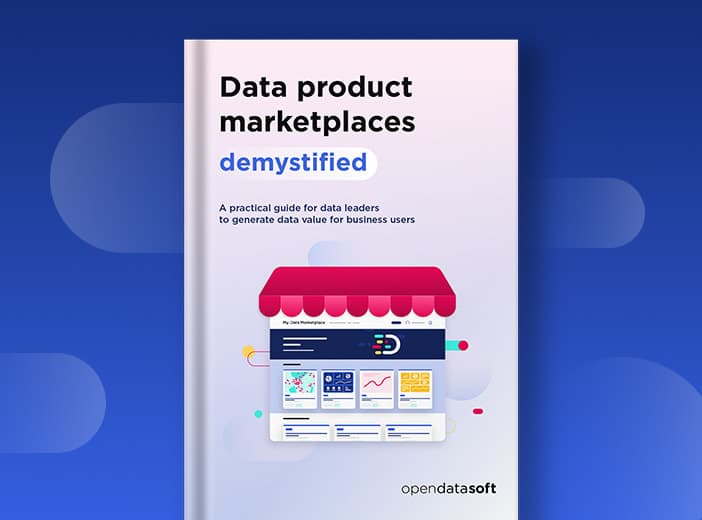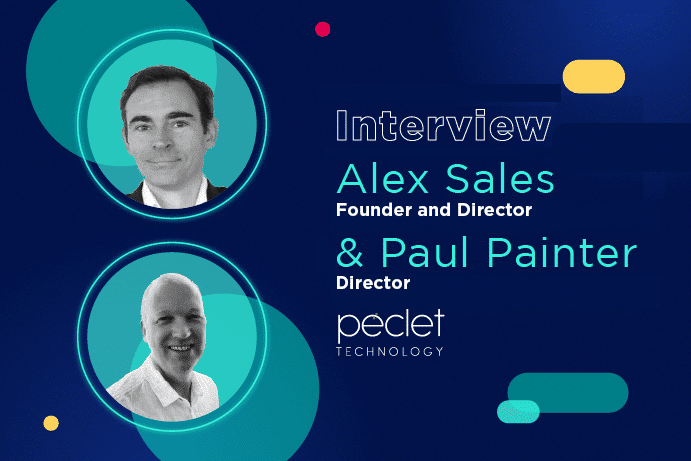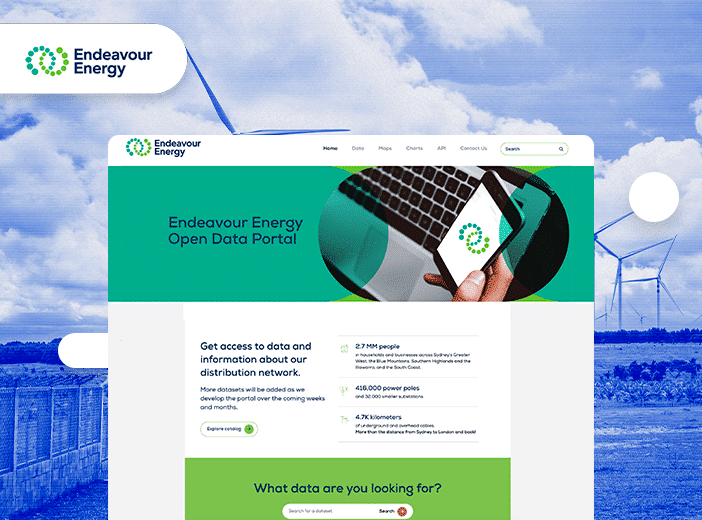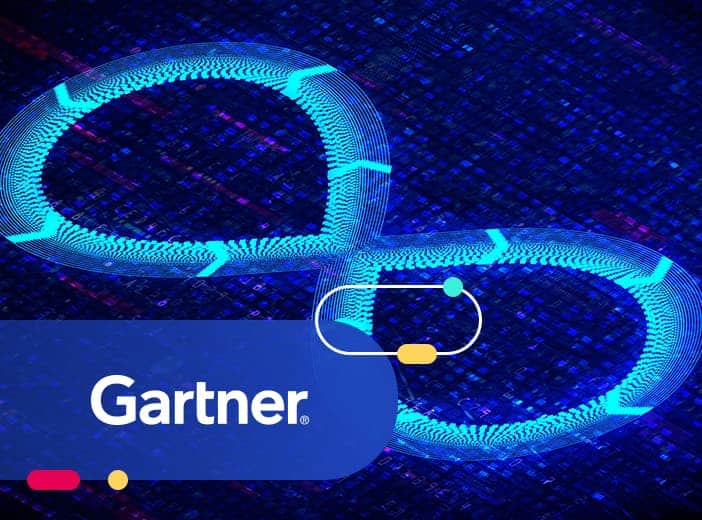Transforming public data into value – lessons from Australia
Cities and municipalities create huge volumes of data - but ensuring it is used effectively by every department to engage stakeholders and build trust can be difficult. Using real-world examples from a new ebook published by our partner Peclet, we explain how municipalities can truly turn data into value.

Across the globe, cities and municipalities are publishing a range of data to deliver transparency, create trust and ensure regulatory compliance. However, simply publishing data is just the first step – it is vital that it is accessible and easy to consume by end users, who could be citizens, businesses or other stakeholders. These groups often don’t have the technical skills to interpret and effectively use raw data, meaning programs don’t maximize consumption and value. The same lack of accessibility can also hold back its use for artificial intelligence, preventing the creation of innovative new solutions to community problems and challenges.
Turning data into value requires a user-centric approach that makes it seamless to connect the right people to relevant data in the right format for their needs. Public data product marketplaces support this objective, providing an intuitive self-service user experience similar to an e-commerce marketplace, with data available through visualizations, dashboards and maps to make it understandable and actionable. This needs to be combined with a focus on the right use cases. Based on examples from a new ebook from Opendatasoft’s Australian partner Peclet Technology, this blog provides insight and guidance for councils and municipalities around the world.
Maximizing data value for local government
Once municipalities and councils have created an intuitive public data marketplace, they need to provide the right data, focused on specific use cases and needs, delivering information that stakeholders will value.
Given the range of services offered by cities and municipalities, focusing on the right use cases can be difficult – Peclet’s ebook offers 50 real-world examples organized around ten key business units:
- Arts, culture and heritage
- Tourism and economic development
- Waste, recycling and circular economy
- Health and safety
- Parking and transport
- Environmental and sustainability
- Parks, sports and recreation
- Governance, administration and finance
- Assets, planning and capital works
- Community, events and education
While the examples are drawn from success stories in Australia, the same principles and ideas can be applied to any municipality, anywhere in the world. This blog explores some of these use cases – download the full ebook to read them all.
Tourism and economic development
Access to practical economic and geographic data is vital for businesses, tourism operators, and residents looking to make everyday decisions. Whether it is footfall in an area, local amenities or forthcoming events, these insights help improve planning and decision-making.
As part of its commitment to improving public spaces and community wellbeing, the City of Darwin launched the Darwin Liveability Platform, a public-facing tool that provides key indicators related to liveability and population characteristics, including total population, median income, age distribution, and language diversity. For more detailed insights, the platform features an interactive map that allows users to locate a wide range of neighborhood amenities, as well as providing updates on new projects and giving the chance to deliver feedback on them. The platform also lets users pin places they love and explain why these spaces matter to them, uploading photos and short reflections.

The Darwin Liveability Platform brings together community feedback and spatial data to help residents share what matters most in their neighborhoods and guide future planning decisions, enabling the council to improve public spaces through inclusive, data-informed approaches.
Parking and transport
Urban mobility is a key issue for residents, drivers and businesses. Spatial data and information from real-time sensors can be combined and harnessed to reduce traffic jams, increase the use of sustainable transport options and make better-informed planning decisions.
Melbourne is home to over five million residents and serves as a major hub for business, tourism, and cultural activities. Managing urban mobility is a key priority for the City of Melbourne, and the council has embraced open data to improve efficiency, transparency, and accessibility.

One of its most impactful initiatives is the Smart Parking program, which leverages real-time data to enhance parking availability and reduce congestion. It integrates real-time parking sensor data covering 4,000 bays, made publicly available via its Open Data Portal and some car navigation systems, helping drivers locate available spaces more efficiently and reduce traffic congestion caused by circling.
Melbourne’s Smart Parking initiative exemplifies how data can support urban innovation. By transforming real-time parking insights into public infrastructure improvements, the initiative enhances traffic flow, supports emissions reduction, and showcases how data can drive more sustainable city mobility.
Environmental and sustainability
Meeting sustainability challenges is a shared objective for councils, residents, and businesses. While an increasing amount of data is now available from sensors that measure air quality, emissions and energy/water consumption, connecting this to real-world behavior and decision-making can be difficult, hampering engagement and participation. By unifying environmental data into a central, easy-to-use platform, councils can improve project oversight, reporting and community involvement.
Casey City Council and Hawkesbury City Council have worked with Peclet to develop dedicated emissions dashboards aimed at driving community engagement and raising environmental awareness. These dashboards provide residents with comprehensive insights into greenhouse gas emissions, electricity and gas consumption, and associated
costs across the municipality. Casey’s dashboard enables residents to access detailed data on their local area’s emissions by zip code, while the Hawkesbury Sustainability & Net Zero Tracking dashboard builds on this foundation by not only covering emissions across residential and business sectors, but also integrating the Council’s own operational emissions, and quantified actions taken to reduce them.

Parks, sports and recreation
Encouraging the use of parks and other outdoor amenities is crucial to supporting healthy lifestyles and community wellbeing while engaging residents with their natural environment. Supporting and inspiring people to make the most of parks and sports relies on sharing data, such as on opening times and events, in engaging and compelling ways.
Camden Council partnered with Peclet to develop Hook, Line & Measure, an innovative citizen science project designed to enhance waterway conservation and community engagement. Through its user-friendly platform, it allows the local community to record and share data on fish species, size, and distribution across waterways in the local area. This information not only helps the Council collect valuable baseline data but also identifies key areas for recreational fishing.

By encouraging residents to participate, the project builds a bridge between environmental stewardship and recreational enjoyment. It helps local fishers adopt sustainable habits while improving their understanding of the region’s aquatic biodiversity.
Governance, administration and finance
Understanding how municipalities are performing and how they are spending their budgets is key to building trust and accountability with residents. While this information is publicly available, it can be difficult to find as it is often contained in long, static PDF reports. Embracing interactive dashboards and visualizations make it easier for residents to engage with council processes, participate in decision-making, and build trust in local leadership.
To improve public access to council decision-making and increase transparency, the City of Casey developed a dedicated Councillor Transparency Dashboard. This consolidates information such as the number of Council decisions made, whether meetings were open or closed to the public, individual councillor voting records, and attendance at formal meetings and briefings. It also tracks how consistently each councillor attends meetings, allowing residents to better understand the level of engagement and accountability of their representatives.

By transforming static reporting into interactive and visualized insights, the platform makes it easier for residents to explore how local decisions are made and how public resources are being managed. This fosters greater trust, strengthens civic engagement, and ensures that decision-making processes are clear, open, and accessible to all.
Assets, planning and capital works
While they are responsible for large-scale assets, managing existing infrastructure and new projects can be challenging for councils. By integrating data from multiple systems and making it available visually, they can improve asset management, enhance infrastructure maintenance, and streamline capital works reporting as well as keeping citizens and businesses informed on performance.
The City of Geelong has introduced the Major Projects Dashboard, a centralized platform that provides the public with a visual representation of infrastructure investments and progress. It covers over 158 major projects with a total value of nearly US$10 billion, providing a complete view of Geelong’s infrastructure investments. Users can explore project categories, locations, status updates, and estimated completion dates, helping the community better understand future development trends.

By consolidating detailed project data, businesses and investors can leverage this platform to identify potential opportunities, while residents can track infrastructure developments, enhancing policy transparency and strengthening public trust.
Community, events and education
Building a strong community relies on clear, understandable information. A lack of easily accessible information around local events or learning and development resources mean that opportunities are missed, holding back individuals and lowering community participation.
Western Parkland City is undergoing rapid growth, and ensuring equal access to digital resources has become a priority. To bridge gaps in digital inclusion, councils in the area have jointly developed the Digital Equity Platform. This highlights nearby digital services, such as free Wi-Fi, public computers, and printing facilities through an interactive map, while providing a directory of digital learning programs. It also integrates data visualization tools to help Councils monitor and address digital inequality by allocating resources to underserved communities.

Through the Digital Equity Platform, Western Parkland City is making progress towards closing the digital divide. By helping residents easily locate and access digital services while providing Councils with actionable insights, the platform supports both community engagement and effective governance.
Making data a strategic asset
The use cases listed above are just a fraction of the opportunities for municipalities to drive greater value from their information. Achieving success requires a combination of intuitive, self-service data marketplaces, engaging, interactive visualizations and focused use cases, turning data into a strategic asset for local government across the world.
To read all 50+ use cases download the practical guide from the Peclet website.




